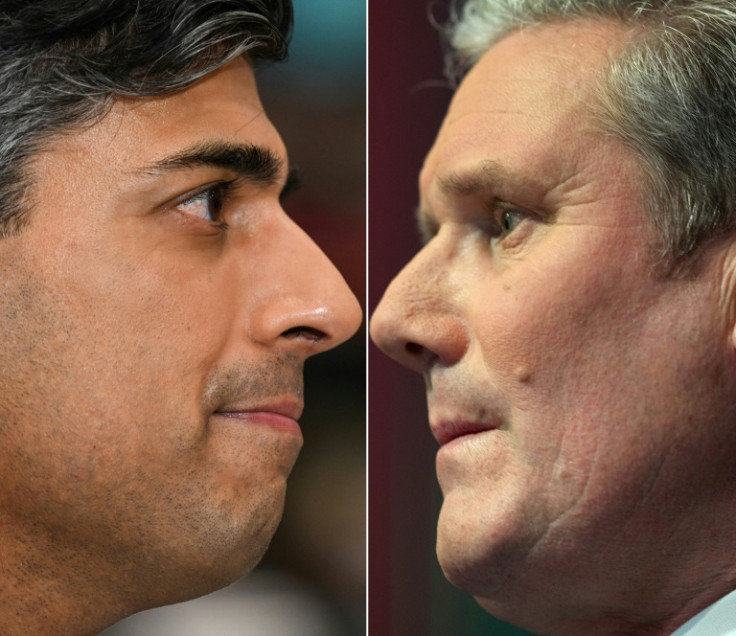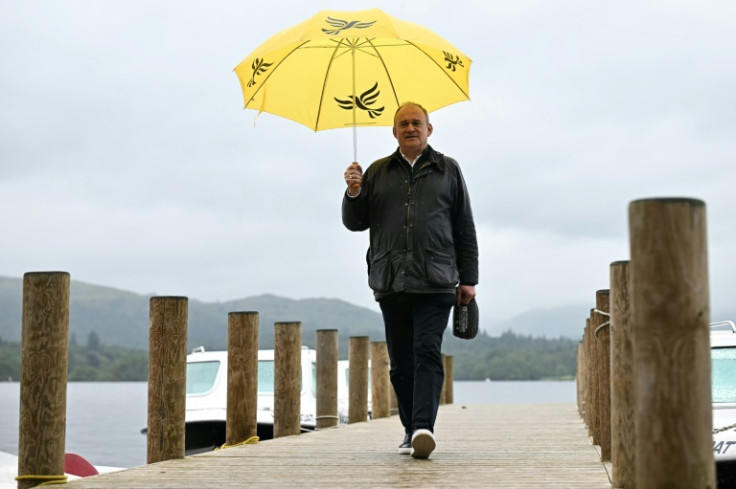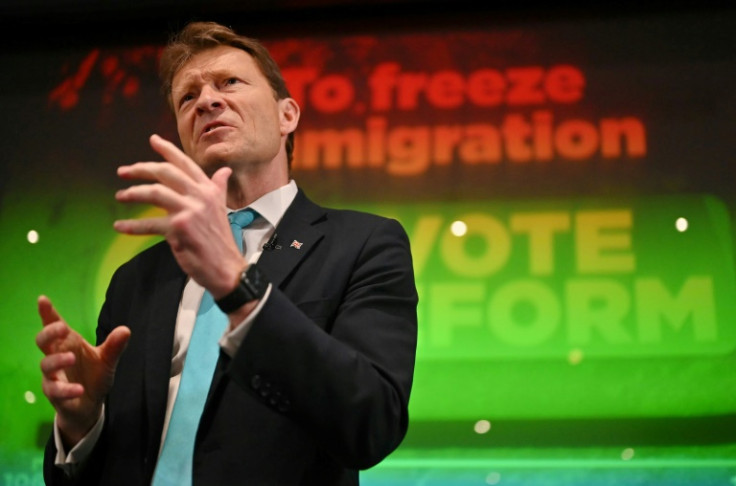
On the face of it, the villain from "Shrek", British singer turned TV presenter Cilla Black, and national service have nothing in common.
But they all have been featured in recent days in the UK general election's newest battleground: TikTok.
The ruling Conservatives and opposition Labour party both launched accounts on the video-sharing platform just days after Prime Minister Rishi Sunak called a general election for July 4.
Data security concerns -- which led to the Chinese ByteDance-owned app to be banned on government phones in 2023 -- have prevented political parties from hopping onto TikTok's virality, until now.
However, the surprise election announcement last Wednesday made it "kind of necessary to be on there, given its popularity", media consultant Tim Gatt told AFP.
In less than a week, Labour's account has amassed more than 120,000 followers. The Tories trailed with around 36,000 as of Wednesday, when the smaller opposition Liberal Democrats joined the fray.
A smattering of videos on the Conservative page include Sunak talking to the camera about his pledge to bring back national service if they retain power.
The move -- which would require 18-year-olds to join the military for 12 months or spend a weekend every month for a year volunteering in their community -- has become a hot topic on TikTok, and is opposed by many of its young users.
Labour's campaign has taken a slightly different approach, which experts say highlights the contrasting strategies and stakes for Sunak and Keir Starmer, who is tipped to be the country's next leader after the election.
One Labour TikTok post uses a clip from the movie "Shrek" showing the diminutive villain Lord Farquaad saying "some of you may die, but it's a sacrifice I am willing to make".
The caption on the video reads, "Rishi Sunak announcing national service", with the video garnering more than 2.5 million views in just a few days.
Another in reaction to the announcement features the late Cilla Black singing the theme tune to her long-running light-entertainment programme "Surprise, Surprise".
Other posts use clips from Sunak's shaky start to his national campaign, including his announcement of the election during a torrential downpour.
Labour's meme-heavy approach is markedly different from its strategy on other social media platforms, says Andrew Chadwick, professor of political communication at Loughborough University.
"The cutting edge of the wacky videos -- the ones where risk-taking is involved -- that's happening on TikTok right now. And I think that is something new," he said.
In contrast, he finds the Tory TikTok campaign "fairly dull".
However, Gatt says Sunak's "traditional" approach is "very well-thought-through".
"He's trying to present himself, as I understand it, as a man with a plan at a very serious time for the world," said Gatt, who has previously managed digital communication for various government departments.
"He's going to try and show a way where he's authentic. Authenticity and credibility are key to successful TikToks."
While the last few general election campaigns have focused on social media, mainly Facebook and Twitter, this is the first election in which TikTok will be in the spotlight.
Only one percent of UK adults used TikTok for news in 2020, according to the country's media regulator Ofcom.
The figure rose to 10 percent by last year, making TikTok the fastest-growing source of news in the UK.
The audience on TikTok has expanded beyond young people as well. The "perception of a TikTok user being more of a liberal, left-leaning, younger person may not be true anymore," says Gatt.
Currently ahead of both the Tories and Labour, the party with the highest TikTok following is actually Reform UK, an anti-immigration right-wing populist party claiming to be the "new Conservatives".
Adding a layer of novelty, on TikTok, unlike Facebook and Twitter, political advertising is banned. This also means that parties cannot buy ads to target specific audiences.
Instead, they are "dependent upon TikTok's algorithm and ordinary users", Chadwick says, which adds pressure to adapt to the new environment.
For Chadwick, "Labour have got a better understanding of this at this point in time" because they are producing the kind of content that "would not appear in an ad".
The lack of paid political advertising on the platform also opens up room for unpredictability regarding how the TikTok campaigns could affect the election.
"They can't control the environment in the way that they've learned to control online advertising during campaigns over recent election cycles," said Chadwick.










